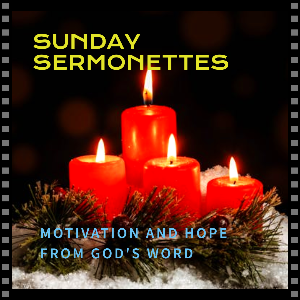Sunday Sermonettes #034
The End
Have you ever watched a thrilling movie and missed to see the climax at the end?… Read the rest

Bejoy Peter's Public Speaking ®
Destroying stage fright since 1996 ®
Have you ever watched a thrilling movie and missed to see the climax at the end?… Read the rest
 “Near the cross of Jesus stood his mother, his mother’s sister, Mary the wife of Clopas, and Mary Magdalene.”… Read the rest
“Near the cross of Jesus stood his mother, his mother’s sister, Mary the wife of Clopas, and Mary Magdalene.”… Read the rest
It is easy to say God is dead. Atheists believe that there is no God. There might be logic in their argument.… Read the rest
Shankumugham Beach, Thiruvananthapuram, Kerala, India.
10th September 2010.
Two sets of fishermen were standing in line. They were holding on to two ends of the fishing net.… Read the rest
Why should you be invited to life? Aren’t you living already? Or is there life beyond life as we know it?… Read the rest
“All the world’s a stage, And all the men and women merely players”; so wrote Shakespeare. And he further added about the school boy thus: “And then the whining school-boy, with his satchel And shining morning face, creeping like snail Unwillingly to school.”… Read the rest
Is entertainment the religion of the 21st century Masses? Oh, yes! Everywhere people line up to be entertained. Be it sports, films, music bands, reality shows, politics, gaming, or even religious meetings, people love to be entertained.… Read the rest
Let us look at the most important decision of one’s life. As you think about it, you should also know that some people look at life as a joker’s circus, a traveller’s journey, or a pilgrim’s progress.… Read the rest
John 3:16 says, Whoever believes in Jesus shall not perish. “Whoever” includes you and does not exclude any from God’s love.… Read the rest
Today is different from yesterday because each one of us is growing up. I am fascinated by the change that is happening.… Read the rest
In this post, you will find these in four sections:
I. A Brief Introduction to Bishop Jesudasan’s Life and Legacy
II.… Read the rest
Grace is often described as the favour of God which we do not merit or deserve. On one occasion the LORD Jesus said to St.… Read the rest
My dear friend, “Are you thirsting for true love?” If so, your thirst ends here. For it is God who is saying, “I have loved you with an everlasting love.”… Read the rest
Most of us worry constantly. It can depress you and make you lose hope. In the midst of your anxieties, one way to stay afloat without losing hope is to ask yourself the question, “Why are you downcast, O my soul?”… Read the rest
Did you know God is waiting for you? He knows that like a foolish child you’ve strayed and lost your way.… Read the rest
Not many of us are fully satisfied with what we see in the mirror; are we? Your image in the mirror does not reflect you accurately; does it?… Read the rest
“Blessed are the poor in spirit, for theirs is the kingdom of heaven.”1 But is it easy to become poor in spirit?… Read the rest
How many people know you by name? That question is deeper than you think. In that sense the question is, how many people know you truly?… Read the rest
A day will soon come when Jesus will call the dead to life. And those who hear his voice will come back to life.… Read the rest
What if at the end of a hard night’s toil; you just have an empty boat? Isn’t it good enough reason to be depressed?… Read the rest
കർത്താവായ യേശു ക്രിസ്തുവിൻ്റെ ധന്യ നാമത്തിൽ ഏവർക്കും സ്നേഹവന്ദനം.
വളരെ വർഷങ്ങൾക്കു മുൻപ് വില്യം കൗപ്പർ (William Cowper) എന്ന കവി ഇംഗ്ലണ്ടിൽ ജീവിച്ചിരുന്നു. ഒരിക്കൽ അദ്ദേഹം നിരാശനായി തീർന്നു.… Read the rest
കർത്താവായ യേശു ക്രിസ്തുവിൻ്റെ ധന്യ നാമത്തിൽ ഏവർക്കും സ്നേഹവന്ദനം.
എല്ലാ കാലത്തും വിശ്വാസികളുടെ ഏറ്റവും പ്രീയപ്പെട്ട സങ്കീർത്തനമാണ് ഇരുപത്തിമൂന്നാം സങ്കീർത്തനo. ദാവീദ് തൻ്റെ ജീവിതത്തിലെ അനുഭവങ്ങൾ ഇവിടെ എഴുതുകയാണ്.… Read the rest
Jesus Christ is risen from the dead. There stands before men and women no greater truth and hope than his life triumphing over death.… Read the rest
Right from a child’s wonder as to who made the stars to a philosopher’s explanation of the meaning of life there is in every human heart an yearning to search for the truth.… Read the rest
Bless the LORD, O my soul!
For who he is, Mighty God who is holy!
Bless the LORD, O my soul!… Read the rest
God did not give up on man when he rebelled aginst him. Instead God sent his one and only Son Jesus to this world; born a baby in a manger in Bethlehem.… Read the rest
I love you!
These are the words that has made many buds bloom, made many birds chirp and flap their wings in delight, and has painted mesmerizing loveliness in soft pastels.… Read the rest
This article can be read in Sunday Sermonettes at
—
God Give You the Grace to Overflow with Hope
When Death Speaks, Listen to Its Meaning!… Read the rest
“Where do you see yourself five years from now?” is a typical question in a job interview. It is a tricky question and is used to assess the candidate’s commitment to the job and to find out his or her career goals.… Read the rest
Have you tried to find satisfaction in work, in play, in entertainment, in relationships, in love, in pleasures, and even surfing the internet or chatting in social media platforms?… Read the rest